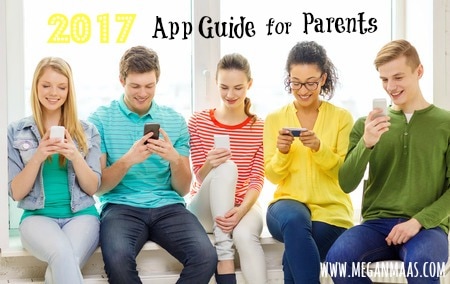|
Copyright: dolgachov / 123RF Stock Photo
A couple of years ago, I wrote an app guide that went viral on BonBon Break and For Every Mom. So I’m back with another app guide for 2017! Bad news: there are more apps to be concerned about. Good news: the kids are alright. Most kids use their apps responsibly to connect with friends whom they already know in a friendly and respectful manner. However, that doesn’t mean that parents should check-out. The following apps have the potential for harm, especially for kids and pre-teens. There are 5 categories of apps that I think all parents should be aware of: the (1) major players-these apps are used by people of all ages, but might have potential for danger when used by minors; (2) vault apps-these apps hide images, videos, and messages and are often used to hide nude images; (3) live casting apps-these apps allow your kid to broadcast whatever they are doing to wide audiences in real-time; (4) anonymous apps-these apps allow users to make posts or comments anonymously, so they are often used for bullying; and (5) messaging apps-these apps allow the exchange of text, pics, videos-but some have features that instantly delete content. It’s important for parents to know the kinds of apps that are out there in order to have impactful conversations with kids about safe social media use. Major Players
Live Casting Apps
Vault Apps
Anonymous Apps
Messaging Apps
Find out if these apps are on your kid’s phone. Ask them what they like about the apps and why they use them. Then, add your kid to your iCloud account. That way, whenever a new app is downloaded, it will automatically download to your phone as well. Alternatively, you can password-protect any app purchasing account to require a password for downloading apps. But above all, remember that apps themselves are not the problem. Your goal is to keep open lines of communication with your kid, as you maintain awareness of the technology they use. For more information on safe social media use, check out iKeepSafe and Above the Fray.
1 Comment
|
About this Blog:I'm here to help us discuss sexuality, gender, and media by integrating information from academic and mainstream sources. I hope this resource produces more sexually competent people who raise sexually competent kids. Categories
All
|



















